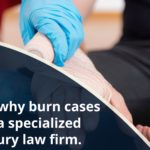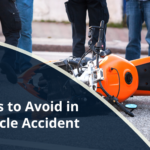Around the world, millions of people are unable to work due to occupational diseases. These diseases are caused by exposure to hazardous substances or conditions in the workplace. In some cases, they can lead to permanent disability or even death.
The good news is that there are laws to protect workers from these risks. If you cannot work due to an occupational disease, you may be entitled to compensation from your employer.
This article provides an overview of occupational diseases, their symptoms, and what you can do if one affects you.
What is an occupational disease?
An occupational disease is any chronic ailment caused by prolonged exposure to hazardous conditions in the workplace. Occupational diseases can be caused by various factors, including exposure to chemicals, dust, or other toxins. Occasionally, an occupational illness may result from repetitive motion or poor ergonomics. While occupational diseases can affect workers in any industry, certain occupations carry a higher risk.
For example, workers in the construction industry are at an increased risk for respiratory diseases due to exposure to dust and other airborne particles. Likewise, workers exposed to hazardous chemicals, such as those used in manufacturing semiconductors, are at an increased risk of developing cancer.
There are a variety of ways to prevent occupational diseases.
- The most effective method is to eliminate exposure to the hazardous conditions that trigger the disease.
- Sometimes, this may mean using personal protective equipment, such as masks or gloves.
- In other cases, it may mean redesigning workstations to improve ergonomics.
Occupational diseases can have a significant impact on workers and their families. In addition to the physical effects of the disease, workers may also experience financial hardship due to lost wages and medical bills.
How can an occupational disease impact your ability to work?
An occupational disease can have a significant impact on your ability to work. In addition to the physical effects of the disease, you may also experience financial hardship due to lost wages and medical bills.
The emotional toll of an occupational disease can also be significant, as you may feel unable to perform your usual duties at work. In some cases, you may even be forced to take early retirement.
What should you do if you are diagnosed with an occupational disease?
If you are diagnosed with an occupational disease, it is essential to seek medical treatment and inform your employer as soon as possible. You may also want to consult an experienced attorney who can help you understand your legal rights and options. Workers diagnosed with an occupational disease may be entitled to workers’ compensation benefits, disability benefits, or other forms of financial assistance.
If you are diagnosed with an occupational disease, you should seek medical treatment and inform your employer as soon as possible. You may also want to file a workers’ compensation claim. Workers’ compensation can help you cover lost wages and medical bills. In some cases, it may also provide benefits for your family.
How can filing a workers’ compensation claim help you?
If you have an occupational disease, you may be eligible to file a workers’ compensation claim. This can help you get the benefits and compensation you need to cover your treatment costs and lost wages.
Filing a workers’ compensation claim can be complex, but our experienced team at 2H Law can help you navigate the system and get the compensation you deserve. We have a proven track record of success in handling workers’ compensation claims, and we can help you get the resources you need to recover from your occupational disease.
If you think you may have an occupational disease, contact us today at 619-374-9320 to learn more about how we can help you file a workers’ compensation claim.









